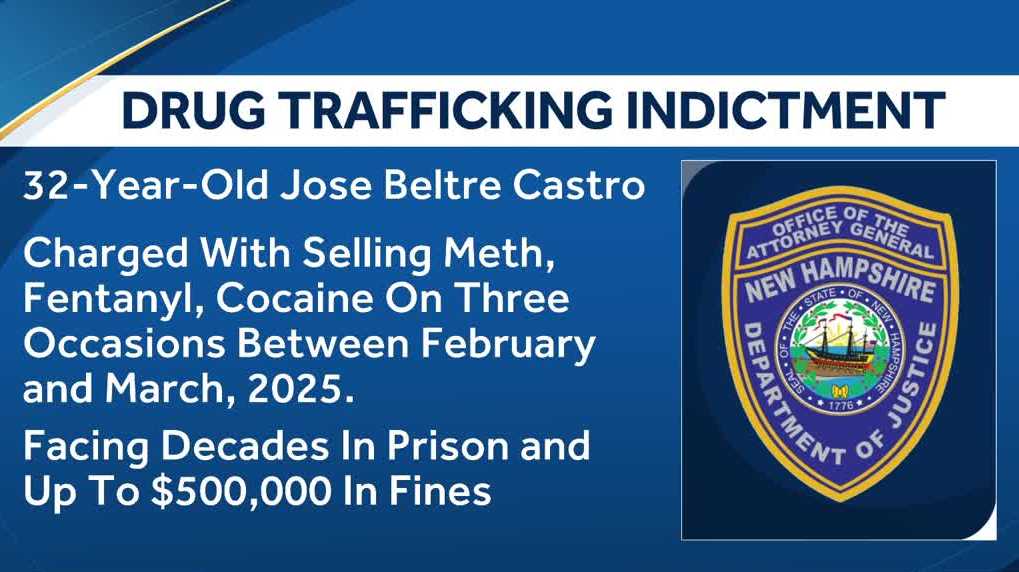
Prosecutors say a family operating an oil terminal in Texas received 2,881 shipments of smuggled oil connected to the Cartel de Jalisco Nueva Generación.
Mexico takes on American gun companies at Supreme Court
Supreme Court justices expressed skepticism as Mexico attempted to hold American gun companies responsible for drug cartel violence.
MEXICO CITY – An American family operating a Texas oil company near the border has been indicted by U.S. authorities for a years-long operation that smuggled thousands of shipments of oil stolen by drug cartels, federal prosecutors announced Friday.
James L. Jensen, wife Kelly A. Jensen and sons Maxwell S. and Zachary G. Jensen have all been charged in connection with the scheme. James Jensen is the operator of Arroyo Terminals, a company based in Rio Hondo that receives and distributes shipments of crude oil.
A total of 2,881 of shipments Jensen’s company received since May 2022 came from Mexican smugglers tied to the Cartel de Jalisco Nueva Generación, according to the U.S. Attorney’s Office for the Southern District of Texas. Experts have previously told USA TODAY that the CJNG organized crime group is perhaps the most militant in Mexico, turning regions into essentially warzones.
The case against the Jensens comes as authorities under President Donald Trump aim to apply greater pressure to cartels smuggling drugs in the U.S. In February, the U.S. State Department designated CJNGthe Sinaloa Cartel and other crime groups as terrorist organizations.
“This case underscores the more aggressive and innovative approach the Southern District of Texas is taking towards combating the scourge of drug cartels,” said U.S. Attorney Nicholas J. Ganjei. “This strategy focuses not just on the traffickers and trigger-pullers directly employed by the cartels, but also targeting their confederates and enablers.”
Most of the charges are against James and Maxwell Jensen, who face up to 20 years in prison for money laundering. They face up to 15 years collectively if convicted of aiding and abetting smuggling goods under false statements. Lawyers for the Jensens did not respond to repeated requests for comment.
Oil smuggling is a multi-billion-dollar business for cartels, according to the Treasury Department. A Drug Enforcement Administration official called it “the largest funding source for Mexican drug cartels.”
American authorities’ move to crack down on the Texas company handling smuggled oil comes as Mexican authorities say the practice has been a widespread issue for years with devastating effects south of the border.
“The narrative is that everything bad is done in Mexico and the USA only suffers the drugs,” Jesús Pérez Caballero, a Mexican government researcher, told USA TODAY. “But it’s impossible to do this kind of complex business without these links to support it.”
Mexican smugglers depend on American refiners, small-time oil producers and distributors to make money from the theft.
“It’s a good start to recognize that the USA is not a passive actor in this business,” Caballero said. “It’s as active as the Mexican one.”
What are the charges against the Jensens?
The Jensens have operated Arroyo Terminals in Rio Hondo, Texas, since 2020, according to James Jensen’s LinkedIn page.
Terminals are crucial distribution points in the oil economy, storing oil as it moves between producers and refineries.
Prosecutors allege that from May 2022 through April 2025, the Jensens’ Texas terminals served as a key waypoint for smuggled oil from Mexico, according to the indictment. The family received a total of 2,881 shipments of stolen oil, court filings claim.
The oil was shipped using fraudulent authentication papers and labels, including “waste of lube oils,” the indictment alleges.
The father faces up to 10 years for money laundering spending. According to the money, he used money from the smuggling operation to buy a 2024 GMC vehicle.
Kelly and Zachary Jensen are charged with money laundering conspiracy. Kelly is also charged with money laundering spending conspiracy.
Items they were ordered to forfeit, according to the indictment, included barges for ferrying oil, tractor trailers, the GMC vehicle, a Chevy Stingray registered to Kelly Jensen and a property in Utah where the family has roots.
Ties between Mexican and American smugglers
The family isn’t the first in Texas to face charges related to smuggling cartel oil, according to experts.
Ramanan Krishnamoorti, a researcher at the University of Houston, said the practice has been going on for years at many small-time oil operations.
Smugglers ferry the oil into the U.S. aboard boats or by crossing the border where the traffic is so high that border agents are unlikely to uncover it without significant increases in border crossings.
A typical scheme brings the smuggled oil to “mom and pop” operations throughout Texas, according to Krishnamoorti. The oil is then added to their own supply and by the time it makes it to refineries, it can be hard to tell the difference.
The total amount of smuggled oil is “literally a drop in the ocean,” said Krishnamoorti. But “it’s significant for the cartels in terms of being able to steal and sell.”
Americans involved can make as much as $5 million per barge of smuggled oil, according to the Treasury Department.
The oil is then shipped to markets around the world, from Japan and India to Africa and even right back into Mexico.
Deep seated problem in Mexico
Guadalupe Correa-Cabrera, a researcher at George Mason University and author of a book on Los Zetas cartel, said issues of oil smuggling in Mexico are longstanding.
Mexico’s state oil company Pemex has a legacy of corruption scandals and oil smuggling is just one of charges against operators. The company dates back to the nationalization in 1938 of all private oil companies in the country.
Correa-Cabrera said the scrutiny of American involvement is overdue.
“Somebody has to refine this crude oil or gas condensate,” she said, “and there’s refineries in the U.S. that sell this massively back down south.”
She lauded U.S. authorities for going after Americans involved in order to help fight cartels. But she fears the organized crime groups will be blamed for a more deeply rooted problem.
“The cartel participation is not as important as we imagine,” Correa-Cabrera said. “It’s not like stealing 18-wheelers, it involves knowing about the pipes, the surveillance of the pipes, really specialized knowledge.”
She said the smuggling operations likely depend on everyone from engineers at the pipelines to military officials responsible for watching the border.
“The stories and the coverage has been directed toward cartels,” she said. “But you cannot imagine this happening without all these other parts.”



